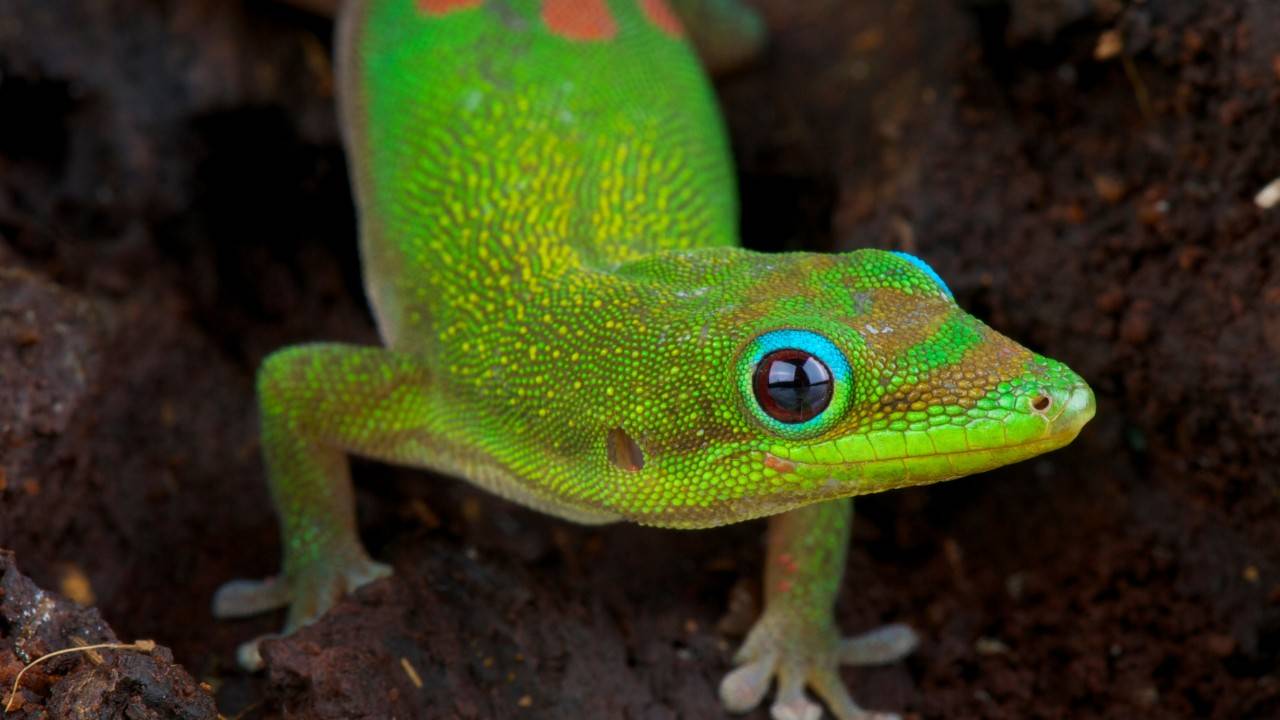The gold dust day gecko is a common sight in Madagascar, but the locals have always known that the species is natural pest control.
Ecologist Thio Rosin Fulgence is trying to find out whether amphibians and reptiles such as the gecko can help vanilla plantations by regulating the populations of insect pests.
But there’s more to the gecko than that. By helping farmers deal with pests, the day gecko can also help protect Madagascar’s forests. On one occasion Fulgence counted 214 gold dust day geckos on forested vanilla plantations, against just 18 on vanilla vines planted on open farmland.
As reported by Positive News, by planting trees for shade, farmers could attract geckos to feed on the insects that destroy their crops.
“That’s why we are encouraging farmers to plant vanilla outside forests and, as vanilla needs shade to grow, to reforest these areas. The trees will provide the necessary shade and increase the forest cover, and in turn, increase biodiversity. A higher forest cover can reinstate the balance between the people and animals – most people in this region depend on forest resources,” Fulgence explains.
Farming vanilla is rewarding but difficult, with three years needed for vines to produce harvestable pods. The delicate vanilla orchids are prone to pests, and then there are cyclones and heavy rains.
Let’s hope that the little gecko restores the natural balance to benefit both the Madagascar forests and local vanilla growers.


